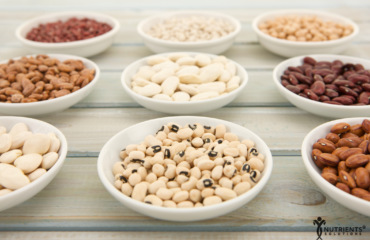Wellness Demystified: We Can Help You Discover Optimum Health
What Do Probiotics Do? 9 Proven Health Benefits

Your body is home to a mix of both good and bad bacteria. Probiotics are good bacteria, which should ideally outnumber bad bacteria in the gut, creating a barrier against them. They improve immune function, protect against infection and improve digestion and the assimilation of nutrients from food [1]. You lose beneficial gut bacteria when you take antibiotics in the short-term or long-term, as these medications don’t distinguish between the good and bad living microbes [2]. Probiotics refer to the friendly bacteria strains and supplements that contain them. Taking probiotics can help you restore healthy levels of beneficial gut bacteria and reap many health benefits, such as improved digestion, immunity, mental health and skin, and overall health.
1. Bolsters Your Immune System
The majority of your immune system is found in your gut, in the form of receptor cells, which partner with probiotics to defend against pathogens. However, good bacteria compete with bad bacteria for space to colonize on receptor cells, which means a proper balance of good and bad intestinal bacteria is crucial to the function of your immune system [11].
Various studies have found that probiotics boost your immune response, and one review of multiple studies concluded that probiotics work to prevent infections like colds and flus [3]. In one study, 475 healthy adults took either a daily probiotic supplement or a placebo. The probiotic group reported 25 percent fewer flu symptoms and 19 percent fewer cold symptoms than the placebo group over the course of 5 and a half years [4].
2. Improves Digestive Health
You can take probiotics as a natural remedy for diarrhea, indigestion, bloating, gas and constipation, as they help break down undigested food in the digestive tract. Antibiotics kill both bad and good bacteria, and this reduction in the population of beneficial bacteria can cause digestive ailments such as indigestion and diarrhea. Probiotics can also help people suffering from irritable bowel syndrome and inflammatory bowel diseases, such as Crohn’s disease and ulcerative colitis [1].
Probiotics improve your body’s ability to obtain nutrients from foods, as they convert carbs into usable energy, promote mineral absorption and assist in the synthesis of B vitamins and vitamin K [2]. A review of 5 studies concluded that probiotic strains B. lactis and L. casei reduced constipation in people, thanks to their ability to break down waste [3].
3. Boosts Your Mental Health
Research has linked insufficient friendly gut bacteria to mood disorders such as depression and anxiety. There’s a strong connection between your brain and gut, and probiotics are shown to counteract the effects of stress on the body and improve psychological symptoms of anxiety and depression [4]. Probiotics boost levels of serotonin, the “happiness hormone” crucial to mood, appetite and sleep-wake regulation. Serotonin is actually found in your gut, and it communicates directly with the brain through your nervous system. By promoting the release of serotonin, probiotics can improve your mood and overall brain function [12].
4. Helps with Weight Loss
According to research, probiotics can help you with weight loss and weight management. Low levels of healthy gut bacteria are linked to obesity, whereas lean people are shown to have higher numbers of friendly gut bacteria. A 12-week study on obese participants found that consuming a fermented beverage rich in probiotics helped with weight loss [2]. Scientists attribute the weight loss effects of probiotics to their ability to improve nutrient uptake and metabolize food into fuel [4].
5. Improves Skin Health
Due to the link between your immune system and your skin, the balance of good and bad gut flora greatly influences the health of your skin. For example, low levels of beneficial gut bacteria are linked to higher rates of acne and psoriasis [4]. Taking probiotics orally has been shown to reduce skin inflammation by directly modulating the immune system’s response to allergens [5].
6. Helps with Allergies
Probiotics downregulate your immune system’s response to allergens, promoting a normal, appropriate reaction that reduces symptoms of allergies. According to a study published in the Journal of Allergy and Clinical Immunology, babies who develop higher amounts of good intestinal bacteria end up with lower rates of food allergies compared to babies with lower amounts of friendly bacteria [6]. Probiotics may also be a helpful treatment in the case of food allergies, as it reduces intestinal inflammation resulting from allergic reactions to food [7].
7. Increases Insulin Sensitivity
Probiotics can help prevent and manage diabetes by improving insulin sensitivity and downregulating the autoimmune response found in diabetes [8]. In a large-scale study with nearly 200,000 participants, including 15,156 people with diabetes, researchers found that higher intakes of probiotic-rich yogurt helped lower the risk of type 2 diabetes [9].
8. Promotes Heart Health
Probiotics help protect your heart’s health by lowering blood pressure, reducing inflammation, improving lipid profiles and activating antioxidants. In fact, researchers have deemed probiotics to be an effective treatment to help counter high blood pressure and lower your risk of heart disease. A review of current research published in Nutrition Reviews concluded that probiotics are shown to help lower levels of LDL (“bad”) cholesterol and improve other heart disease risk factors without the side effects found in medical prescription drugs [10].
Where to Get Probiotics
You can get more probiotics into your diet through foods or by taking supplements. Fermented foods and cultured dairy products the main food sources of probiotics, including miso, tempeh, yogurt, buttermilk, and fermented milk. You can find probiotic supplements in capsule, tablet or powder form [1]. A probiotic supplement can contain one or multiple strains of bacteria, and the dose can range from 1 billion to 250 billion or more bacteria units per dose. There’s no recommended dosage, but it’s wise to follow the instructions on the product’s label. The most common probiotic species are Lactobacillus and Bifidobacterium, which each, in turn, have varying strains [3].


© 2019 Nutrients Solutions, LLC. All rights reserved. Disclaimer: The information provided is for educational purposes only and does not constitute medical advice. Always seek the advice of your physician or qualified healthcare provider with any questions or concerns about your health. Check with your doctor before beginning any exercise program. Never disregard or delay seeking medical advice because of something you have heard or read in this article or the internet.












